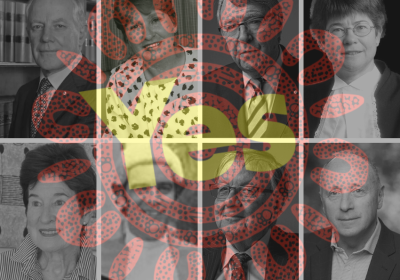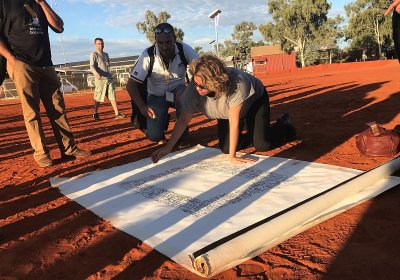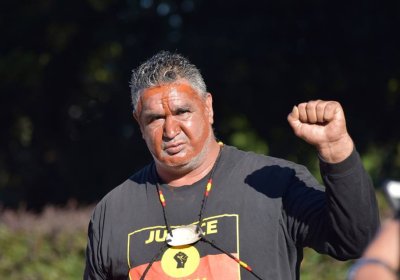Arrente woman Celeste Liddle believes that fear is winning the day in the Voice referendum discussion and that a process of truth-telling first could have achieved a different result. Pip Hinman and Ruth Heymann report.
Uluru Statement from the Heart
A group of former judges, who make up The Australia Institute’s National Integrity Committee, issued an open letter to the Australian public calling for support for the Voice to Parliament, reports Kerry Smith.
The No campaign opposes the movement for First Nations sovereignty and a genuine, continent-wide, Treaty process. But the Yes campaign politically surrenders to the right on this core issue, argues Peter Boyle.
Arrernte woman Celeste Liddle who has been engaged in Indigenous and social justice movements for a long time, says she is undecided on her vote. Below she sets out her thoughts.
Greens Senator Lidia Thorpe is challenging the federal government to answer how its Voice to Parliament plan will deliver First Nations peoples sovereignty. Paul Gregoire reports.
The Prime Minister's pitiful one word change to the national anthem is a meaningless symbolic change that aims to bolster nationalism, argue Marianne Mackay and Alex Bainbridge.
The quest for Aboriginal sovereignty challenges non-Indigenous Australia to let go of any perceived right to define what sovereignty is, writes Peter Griffin.
Kunturu Kulini — Heart Listening
ARTSITE, Sydney
Until November 25
A week of action was launched on November 4 in support of the historic Uluru Statement from the Heart, released last year by delegates to an Aboriginal and Torres Strait Islander Referendum Convention held near Uluru in Central Australia.
I was privileged to be invited to observe a National Gathering of First Nations peoples on November 4–5 at the Aboriginal Tent Embassy in Canberra.
Representatives from many different clan groups from a large number of First Nations across the continent attended. It was a direct response to the events at Uluru earlier in the year, with regard to Constitutional Recognition. Its initial purpose being to discuss the formalisation of a process of recognition of each tribe’s sovereignty.
The descendants of Gurindji workers who participated in the historic walk-off at Wave Hill Station in the Northern Territory have used its 51st anniversary celebration to endorse the Uluru Statement from the Heart and call for a constitutionally enshrined Indigenous voice in parliament.
For Raymond “Bubbly” Weatherall, a Gamilaraay man from the Gunu Gunu and Biridja clans, the outcomes of the Uluru meeting at the end of May have not changed his mind about the tokenism of Constitutional Recognition.
“Throughout the campaign, as well as at the Uluru meeting, no grassroots voices had really been listened to or given proper weight in the discussion”, he told Green Left Weekly.
“The Uluru statement was just another government voice through the mouths of Black people — Megan Davis, Pat Anderson and Noel Pearson.”
This statement was posted on the National Tertiary Education Union website on May 30. The author, Adam Frogley is NTEU National Aboriginal and Torres Strait Islander Coordinator and a Taungurung man from the Kulin Nations.
* * *











